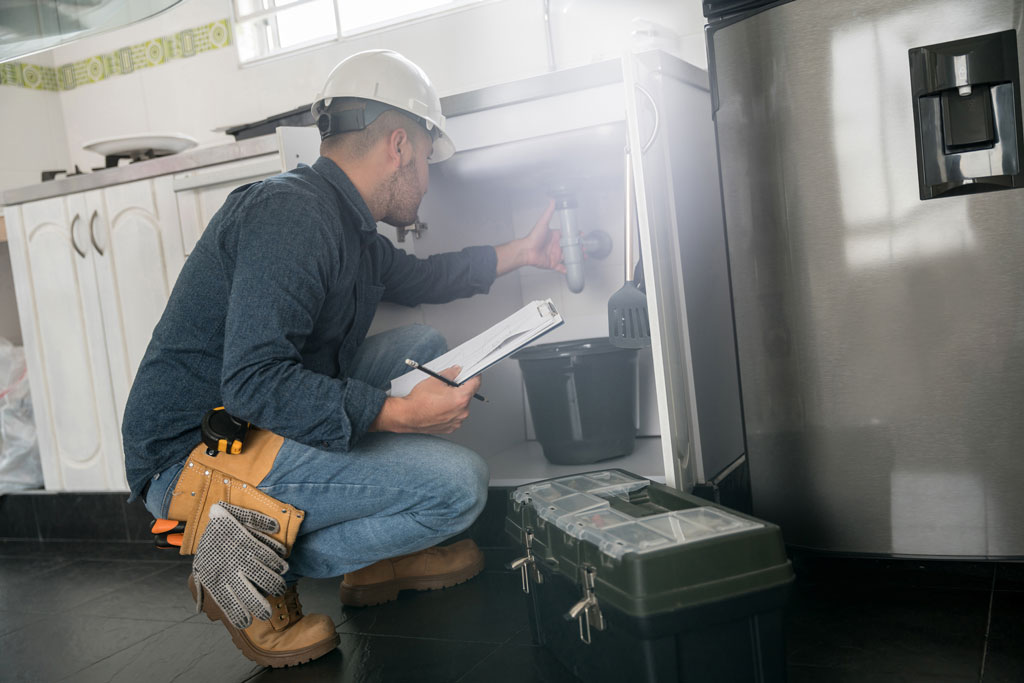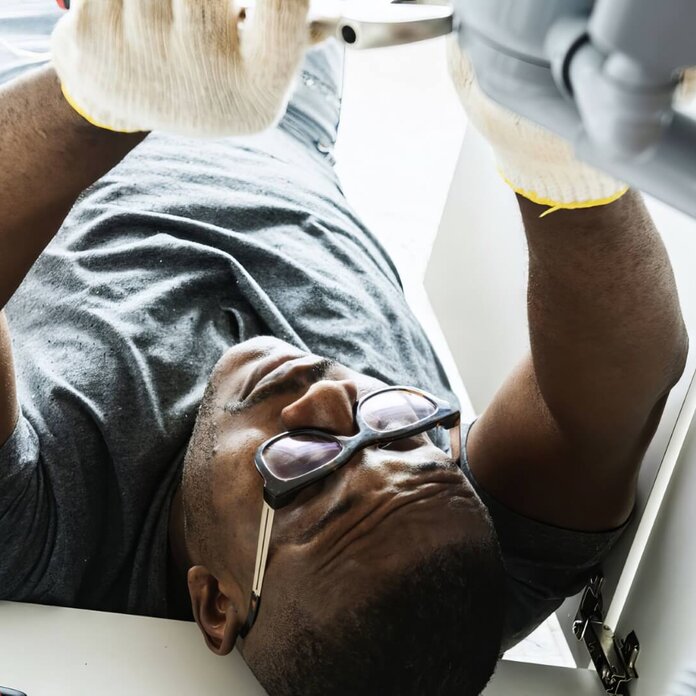Important Emergency Plumbing Fixes to Implement Until Support Arrives
Important Emergency Plumbing Fixes to Implement Until Support Arrives
Blog Article
Have you been interested in ideas involving What to Do While Waiting for an Emergency Plumber?

Plumbing emergencies can strike any time, triggering anxiety and potential damage to your home. Whether it's a ruptured pipeline, a stopped up drain, or a leaky faucet, recognizing just how to handle the situation until a specialist plumbing professional gets here can conserve you from additional difficulties. This write-up supplies important emergency situation pipes suggestions to help you minimize damages and restore control throughout a pipes dilemma.
Turn Off the Water
The very first step in any type of plumbing emergency situation is to turn off the supply of water. For local concerns, such as a leaking faucet or commode, shut off the valve near the component. In the case of a major leak or ruptured pipe, locate your home's major water shut-off valve and transform it off promptly. Understanding the location of these shutoffs in advance can conserve useful time during an emergency situation.
Address Little Leaks with Momentary Fixes
Tiny leaks can quickly end up being significant troubles if left unattended. Use these momentary fixes till professional aid arrives:
While these repairs aren't irreversible, they can help lessen water loss and damage.
Unclog Drains Securely
A blocked drainpipe can be a frustrating and untidy concern. Here's exactly how to tackle it:
If these methods don't work, prevent making use of excessive force, as it might get worse the clog.
Manage Overflowing Toilets
An overflowing bathroom can create prompt chaos. Right here's what you must do:
Shut down Your Hot Water Heater
In certain emergencies, such as a burst pipe, it's wise to shut off your water heater. This prevents getting too hot or damages to the device when water quits moving. Switch off the power supply to the hot water heater (electrical or gas) and allow it cool off to prevent prospective risks.
Briefly Stop a Burst Pipeline
A ruptured pipeline can cause considerable water damage in minutes. To reduce the issue:
Call a specialist plumbing professional promptly to deal with the problem completely.
Take Care Of Frozen Water Lines Carefully
In colder environments, frozen pipes are an usual emergency situation. If you think a frozen pipeline:
Stop Further Damages
Taking quick activity to decrease damages can save you money and time over time. Here's just how:
. Have an Emergency Situation Plumbing Package
Prepare a fundamental pipes emergency situation kit to take care of small issues successfully. Your kit must include:
Having these tools handy can make a substantial difference in your capacity to manage emergencies.
Know When to Call a Specialist.
While quick fixes can help briefly, certain plumbing concerns require instant specialist attention. Call a plumbing technician if:.
Quickly calling a specialist makes certain the issue is fixed properly and protects against more complications.
Conclusion.
Plumbing emergency situations can be frustrating, yet with the right knowledge and tools, you can handle the scenario properly until help shows up. By shutting off the water system, resolving tiny leakages, and making use of temporary fixes, you can reduce damage and keep your home safe. Keep in mind, these ideas are momentary remedies; constantly get in touch with a licensed plumber to handle the root cause of the problem. Preparation and quick thinking are your best allies in any plumbing emergency.
8 Helpful Tips for Managing Plumbing Emergencies at Home
If your plumbing system hasn’t failed once, wait for it because almost everyone has a story to tell. Sometimes, it could be simple emergencies such as a leaking pipe, a blocked cistern, or even a big burst pipe. In situations like this, you need to have some handy tips to save you some money and from possible damages.
Take care of minor issues early.
Sometimes, you could have avoided an emergency by taking proactive measures while it was still early. Some major plumbing emergencies can be a result of an ignored minor issue. We recommend that you have items like plumbing tapes and other related items. A plumbing tape can allow you to manage minor leaks before the plumber arrives.
Cut off the water supply.
This tip is essential in almost any type of leakage problem. For problems like minor leakages in the toilet or kitchen, turn off the supply that takes water to the affected pipes. If the leakage is a major pipe, you must shut off the supply valve to the entire building. This will help you avoid flooding your home and neighbors if you share a flat.
Know your plumbing system
Folks typically move into a new apartment without understanding the water supply around the building. This can prove disastrous if a water emergency arises and the plumber is far away. The previous tip will prove useless if you don’t practice this one. More importantly, know where your water shut-off valve is located – you’ll need that knowledge to prevent potential home floods.
Have some common handy tools
There are lots of plumbing emergencies that you can handle without hiring a plumber. That’s why you must keep some tools available always. Some tools that you can use to fix simple plumbing emergencies easily include plumbing tapes, screwdrivers, thread seal tapes, plungers, pliers, tape measures, and rubber gloves.
Insulate your pipes from cold
You’ll save yourself from many plumbing expenses if you protect your water pipes from the cold. This is because of the harmful effects that cold weather can have on your pipes. During winter, your pipes can burst from being overly expected to freezing temperatures. So, make sure insulators are there to keep the pipes working correctly.
Avoid practices that will clog your toilet.
Many people indulge in practices that can damage the plumbing system of the entire building. One of these is when they use their toilet to dispose-off garbage. They flush all kinds of things, such as paper towels, bandages, hairs, female sanitary products, etc., down the toilet. This will block your toilet in the long run, incurring unnecessary expenditures. Dump such waste in the trash instead.
Check your dials regularly.
Sometimes, there could be leakages in your home without noticing them in time. So, constantly monitor your water meter dial. If the dial is reading when there is nobody using water, this is an indicator that there is leaking. Check for leaks immediately. Call a plumber as soon as possible if you can’t find any.
https://www.constructionplacements.com/8-helpful-tips-for-managing-plumbing-emergencies-at-home/

I am very intrigued by Expert Tips for Managing a Plumbing Emergency Until Help Arrives and I really hope you liked the entire blog post. If you liked our blog post if you please remember to pass it around. Thanks a bunch for being here. Kindly stop by our site back soon.
Or Book Technician Here Report this page